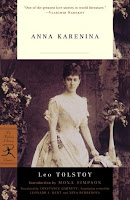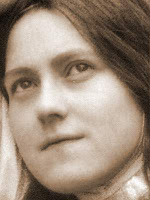 I just finished The Children of Men, by PD James. It's quite a read--good, fast, full of suspense, and philosophically interesting. The premise is brilliant: what would happen if human beings simply lost the ability to procreate? Her descriptions of a world with no children (the book opens with the death of the youngest human alive, a 25-year old) are eerie. Her predictions of subsequent human behavior are fascinating. And the story itself is pretty good, even if the end leaves you unsatisfied.
I just finished The Children of Men, by PD James. It's quite a read--good, fast, full of suspense, and philosophically interesting. The premise is brilliant: what would happen if human beings simply lost the ability to procreate? Her descriptions of a world with no children (the book opens with the death of the youngest human alive, a 25-year old) are eerie. Her predictions of subsequent human behavior are fascinating. And the story itself is pretty good, even if the end leaves you unsatisfied.The most interesting part for me was that she confronts the relationship between sexual intercourse and children with a genuine curiosity: what would we do if... In other words, she's not writing the book to warn us or frighten us (although she does a good job of it). I think she sincerely just wants to look at the question.
Her answer is this: when procreation is no longer a possibility, the result is ugly. Both men and women (and here she's right on) lose pleasure in sex and, thus, desire. The youngest generation feels an increasing sense of entitlement, a lack of interest in honest work, and a general lethargy that results in deadly amusements. Middle-aged women substitute dolls, cats, and dogs for the children they cannot bear. Priorities are put on security, physical comfort, and contentment rather than on courage, the arts, contemplation, and the high adventure of love. The intensity of reality has become too painful for human beings to consider: extinction, helplessness, joylessness.
There is a redeeming element, however, that makes the book bearable. James's description of the (apparently) miraculous birth of one child gives every reader new eyes with which to view the world, infants, and themselves.
It's worth a read.
A movie was made not too long that apparently wasn't bad (although some plot and character details were changed). Here's an excellent review. But James's language mustn't be missed.













